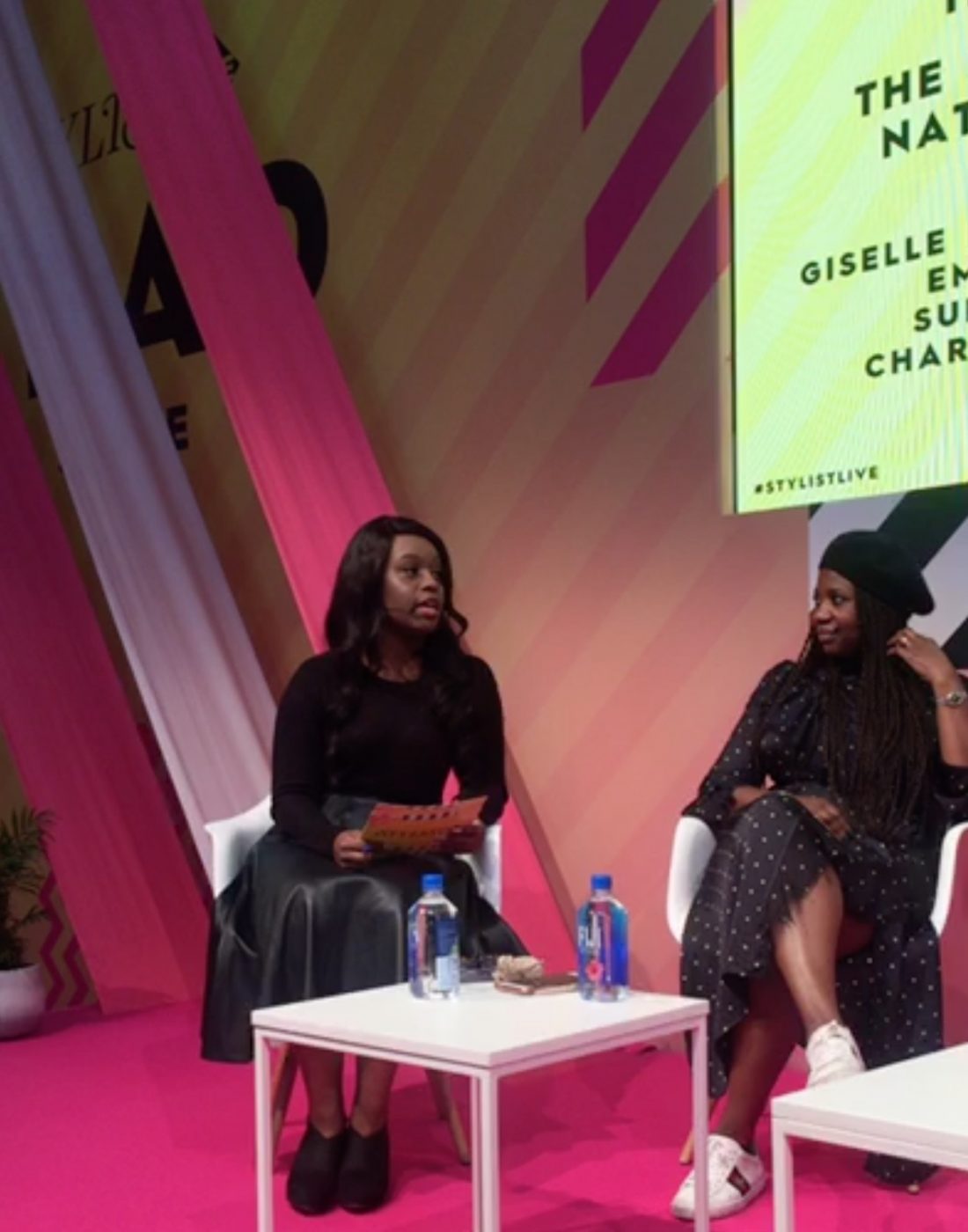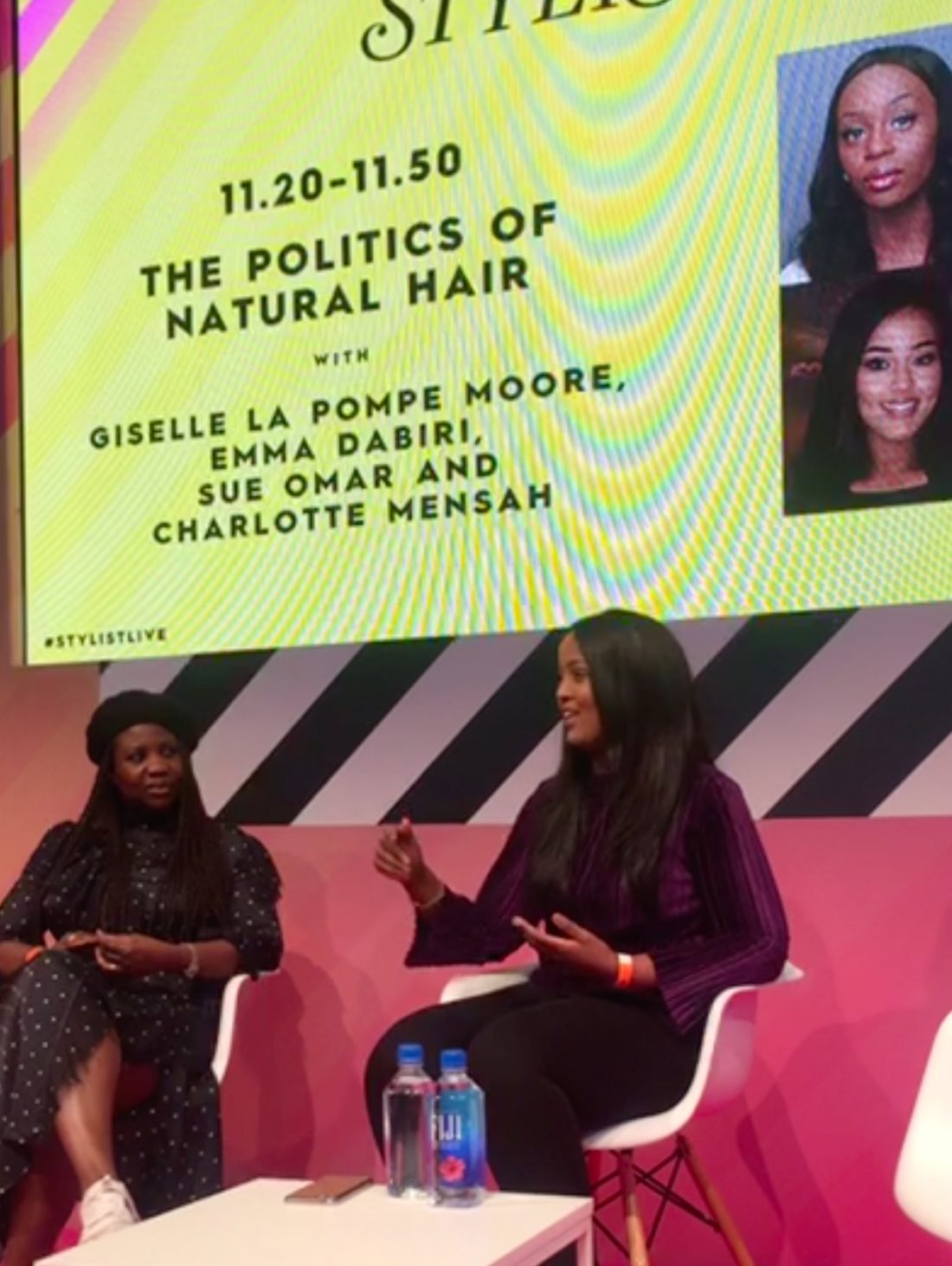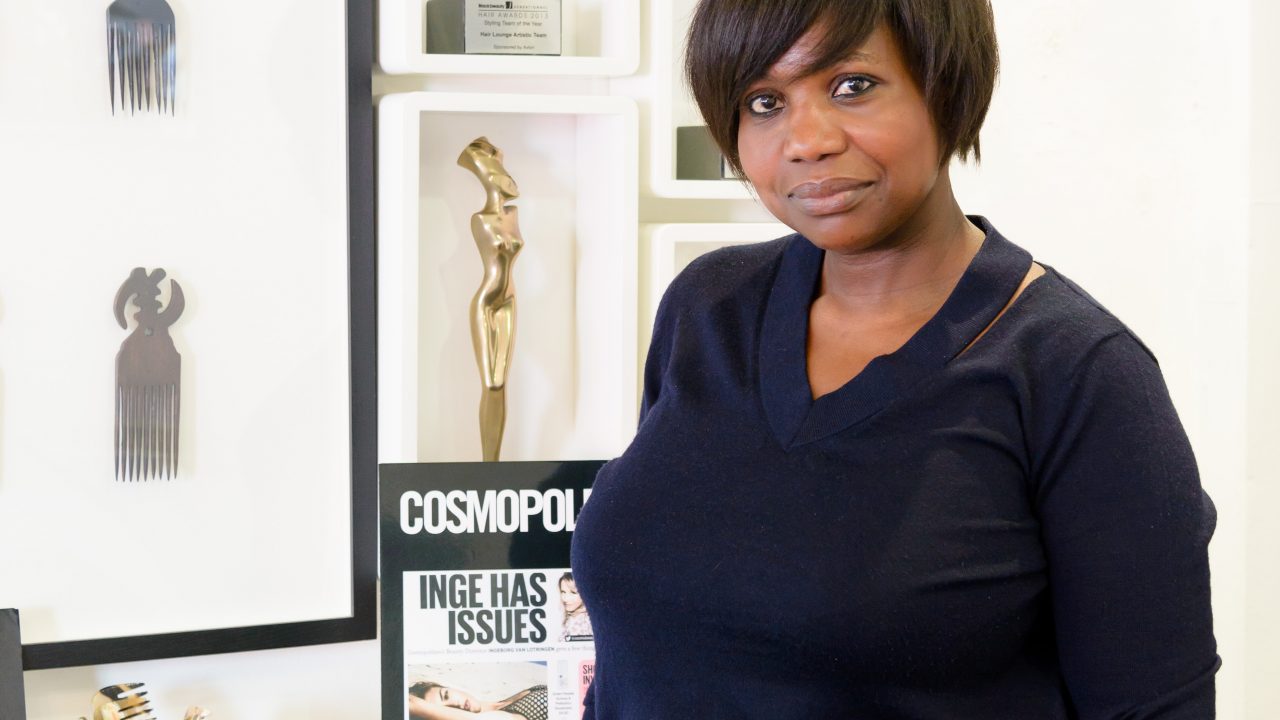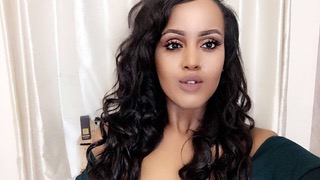The annual three-day #StylistLive festival took place over the weekend of 10-12 November 2017 at the Olympia, London and as usual, it was packed full of inspirational panel discussions, workshops, exhibitors and much more.
Stylist beauty coordinator, Giselle La Pompe Moore, hosted one of our favourite talks of the weekend: The Politics of Natural Hair, which delved into the key issues surrounding the why, how and what of afro natural hair. On the panel was founder of Hair Lounge salon, acclaimed hair stylist, Charlotte Mensah and beauty journalist, and Melanmag.com contributor, Sue Omar.
Here are some key take outs from the discussion:
Sue: Braids can look amazing on anyone. You can own it, wear it. You don’t have to be from a certain race to rock a certain hairstyle. But it’s important to not claim to invent it like Kim Kardashian did!
Why is social media and online platforms so influential in the natural hair movement?
Sue: For a long time, mainstream salons didn’t really cater to afro hair, unless you went to specialist salon like Hair Lounge. We’ve all had experiences where we’ve gone to a main stream salon and been rejected. I was told, “we don’t know how to do your hair.” Online platforms are so successful because it’s like we’re educating ourselves. We’re taking the position as the authority on our hair. So, we’re saying: “Look, this is how I wrap my hair at night, this is how I grow my hair”, there are so many hair journeys out there that we can pick and choose which one is for us. For a long time, there were no platforms that allowed us to do this.
Charlotte: For me, it’s all about education because there are loads of salons everywhere, but sometimes you walk in there with your natural hair and they’re [throws hands in the air]!
The customer will be like, “it’s going to take me like two hairs to do this hair, I might as well just put in relaxer.” It’s really about education. We need people to go out there and just learn. My salon does courses where we teach people to look after natural hair. If you learn the skills, it’s better for you. You can earn more money, add more skills to your set, and you will have more people come through your door. And this is not just directed to the European salons, there’s a lot of African salons out there that could do better. Invest in your career.
On the issue of salons rejecting our hair or charging us more for the same service
Sue: I’ve had experiences where main stream salons have rejected my hair. I couldn’t get a blow dry because they said my hair was too coarse and they were not able to handle my hair. That doesn’t make me feel good. It’s definitely a matter of education and it should start from college level. If a person is passionate about hair dressing as a career then they should really challenge themselves to be a versatile hair stylist that can deal with all types of hair. It’s important for teachers at college to really encourage their students to be excellent at what they do in every area. Thankfully, I see that change happening already, and hopefully in the next 10 years we’ll see more versatility in the main stream salons and see more capable stylists.

How important is training to the movement?
Charlotte: I’ve been in the business for 32 years and I still go on courses. Things change all the time and you need to keep on top. There are so many courses available.
Giselle: Yes, we should educate afro salons, but it’s also about being able to walk into any salon and have our hair treated. Be charged the same price as everyone else. And also receive the same level of care.
Why has the natural hair movement become so popular?
Charlotte: It’s a sign of the times. You walk in a shop and everyone wants to wear natural cotton, they’re eating clean, we don’t even want to use plastics anymore, or want to buy magazines anymore, instead we read them online! I have seen a cycle where black women embrace different styles and they come around again and again i.e sometimes we have a relaxer, sometimes we have a weave, wigs, braids, but I feel like that natural hair is here to stay. It’s not just a trend.
Sue: I agree that natural hair is here to stay. We’re a lot more body conscious, health conscious and aware. There’s also a lot more information out there. We just want the best for ourselves and to put the best versions of ourselves out there. There will always be a place for our hair extensions and our weaves, but it’s important to look after our hair underneath too. Use the right products, invest in your actual hair not just on the weaves and wigs.
The whole point of being on a natural hair journey is to be able to hit each of your natural hair goals, so moisturise your ends, use the right conditioners, detangle your hair right so that the end goal is that you are able to grow healthy, long hair.
On growing long, natural hair!
Sue: A common misconception is that afro hair cannot retain length. It can. It doesn’t matter where you are from, you can grow long hair. If you commit to something every day, eventually you will see a big change. It’s about being consistent in how you look after it.

Three-hour tea rinses, co-washes! These terms can be daunting. Any tips for someone starting the natural hair journey?
Charlotte: I always advise treatments and getting your hair trimmed regularly. Also, your diet plays such an important role in your hair growth, as well as sleep. If you’re not sleeping, exercising, eating well it, will show in your hair. All of these products we add to our hair are just topical; good hair comes from what you put in. Wellbeing is so important.
We should also recognise that not everyone should have 20 inches of hair; some people look the best when their hair is four inches long! We can only look like ourselves. Be you!
Sue: It’s important to recognise that all we see on the ‘gram is not always true; some things are put out just to get the likes! There are hair hacks that we’ll see on Instagram that are ridiculous. A lot of things are constructed just for social media to get your attention. So, my advice is go to reliable sources to get your hair advice, but there’s nothing wrong with taking a little bit of inspiration from social media. Just do your homework first.
It’s better to spend money and invest in your hair than go to somewhere just because they are cheap. The extra money you pay is for the quality, service and education of the stylist and it will reflect in your hair.
Relaxer sales have gone down 37% in the last year, is this the end of the creamy crack?
Charlotte: I believe there are still some really good relaxers out there that contain lots of natural oils honey and avocado. There will always be that woman who will want to texturise or relax her hair. It’s a personal choice thing. People will still look for that short, pixie haircut.
Sue: My mum’s hair is so healthy and strong and she has been relaxing her hair her whole life, but it looks amazing. I’ve seen lots of people who have great hair and they do relax and it’s because they look after their hair. They go to the salon once a month and that’s where they have their hair relaxed, not try to do it by themselves at home. There will always be a place for relaxer.
We left the talk feeling proud of the versatility of afro hair. It’s clear that we, and Society at large, has some way to go before we fully embrace the spectrum of black hair, from the kinkiest curls to the loosest waves. But we are certainly on the right track.














